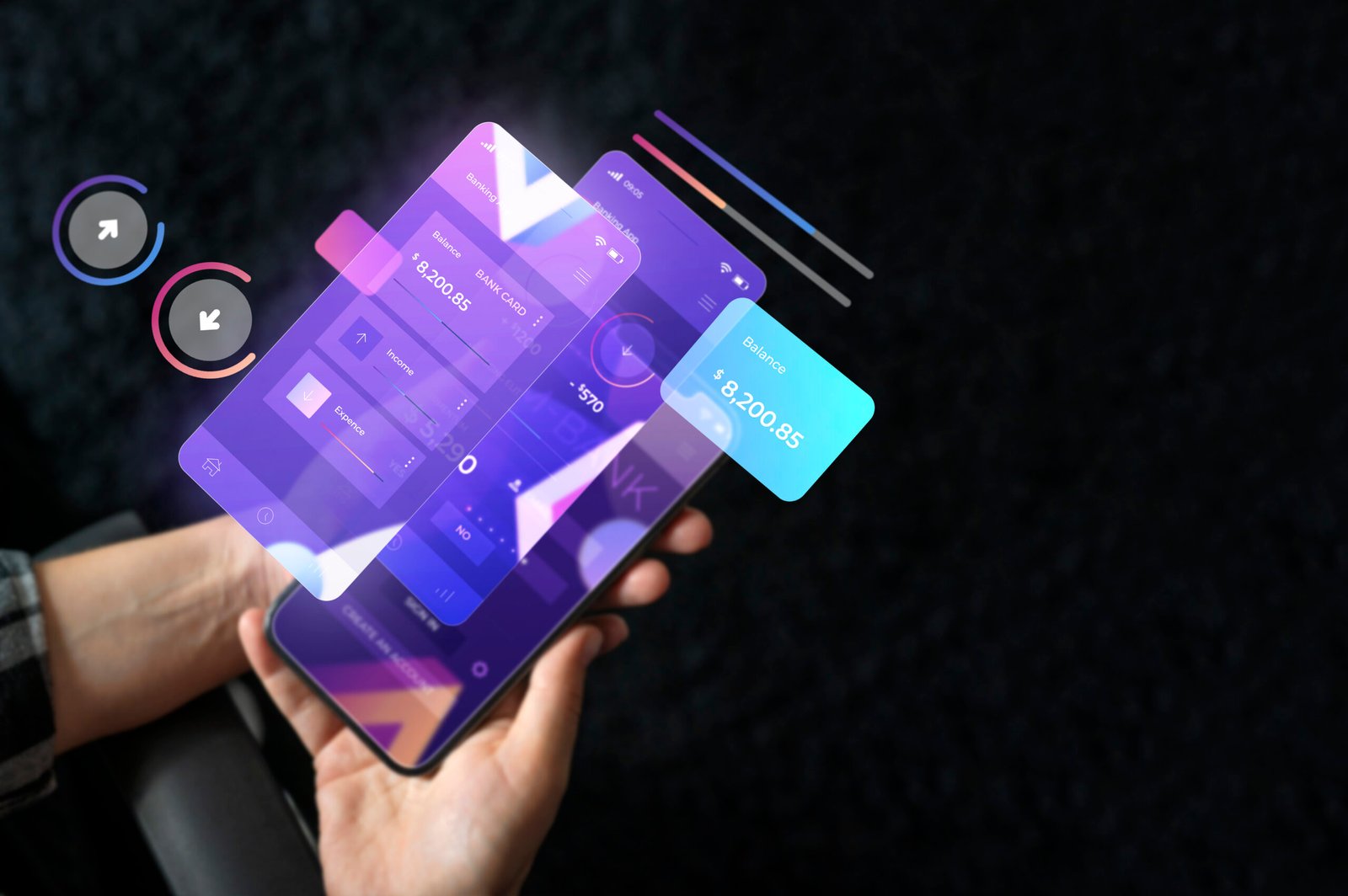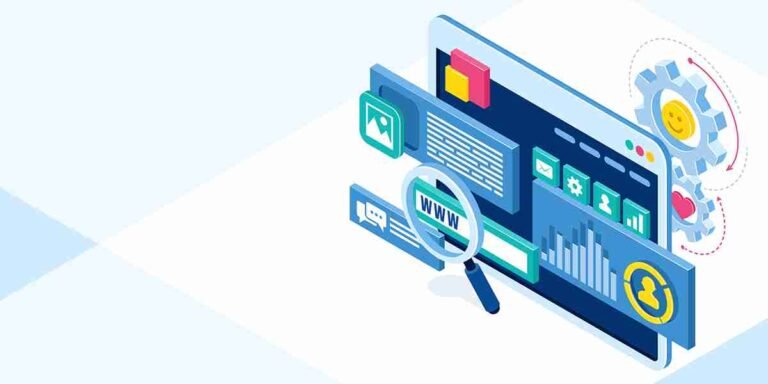The Future of Hybrid Mobile Application Development

As mobile technology evolves, the demand for cross-platform solutions is growing rapidly. Hybrid mobile application development is at the forefront of this change, offering businesses a cost-effective and flexible way to create apps that work seamlessly across platforms. At Mountain Techno System, we believe the future of hybrid mobile application development is bright, driven by innovations in frameworks, performance optimization, and user experience. This blog explores the trends, advancements, and opportunities that will shape the future of hybrid mobile apps.
In recent years, hybrid mobile application development has gained significant momentum, offering a practical solution for businesses that need cross-platform apps without the complexity of developing separate native apps for Android and iOS. At Mountain Techno System, we’re witnessing exciting new trends and advancements that are redefining the future of hybrid app development.
1. Rise of Powerful Frameworks
The future of hybrid app development is being shaped by powerful frameworks like React Native, Ionic, and Flutter, which enable developers to build high-performance apps with a single codebase. These frameworks are constantly evolving, adding new features that blur the line between hybrid and native app performance.
Key advancements:
- React Native’s integration with native code improves app performance and allows for faster iterations.
- Ionic’s focus on progressive web apps (PWAs) bridges the gap between web and mobile, providing users with a seamless experience.
- Flutter’s widget-based framework allows for highly customizable UIs, making apps feel more native to both iOS and Android.
2. Optimized Performance for Hybrid Apps
Performance has always been a key consideration for hybrid apps. The latest advancements in mobile device hardware and software are enabling hybrid apps to match the performance of their native counterparts. Frameworks are optimizing how hybrid apps access native features, such as the camera, GPS, and notifications, ensuring faster load times and smoother animations.
Performance enhancements include:
- Advanced caching techniques that reduce app load times and improve responsiveness.
- GPU acceleration, which enables smoother graphics rendering, making hybrid apps perform better in graphics-heavy use cases.
- Smaller app packages, reducing app size and improving download speeds from app stores.
3. Increased Adoption of Progressive Web Apps (PWAs)
Progressive Web Apps (PWAs) are gaining traction as a key part of the future of hybrid development. PWAs combine the best of web and mobile experiences, offering fast, reliable, and engaging apps that work offline and can be installed directly from the browser. Mountain Techno System is at the forefront of this trend, helping businesses build PWAs that deliver a mobile-first experience without the need for app store approval.
Benefits of PWAs:
- Instant access: Users can access PWAs directly from their browsers without downloading them from an app store.
- Offline functionality: PWAs use service workers to cache app data, allowing users to interact with the app even without an internet connection.
- SEO-friendly: PWAs are discoverable via search engines, unlike traditional native apps, offering businesses better visibility and reach.
4. Seamless User Experience Across Platforms
One of the biggest challenges for hybrid app development has been providing a native-like user experience. However, advances in design frameworks and tools have made it possible for hybrid apps to offer seamless user experiences across platforms. At Mountain Techno System, we focus on building hybrid apps that prioritize user experience, ensuring consistency in UI/UX for both Android and iOS devices.
Key improvements in user experience:
- Adaptive design elements that respond to different device sizes and orientations.
- Consistent UI components across platforms while maintaining native aesthetics for each operating system.
- Faster UI rendering, thanks to advancements in hybrid frameworks, leading to smoother transitions and better app responsiveness.
5. AI and Machine Learning Integration
The future of hybrid app development also includes the integration of artificial intelligence (AI) and machine learning (ML) technologies. These technologies are allowing hybrid apps to offer personalized user experiences, predictive analytics, and advanced features like voice recognition and recommendation engines. At Mountain Techno System, we leverage AI and ML to help businesses create smarter, more intuitive apps.
AI and ML-driven trends:
- Personalized app experiences, driven by user data and behavior analytics.
- Automated customer support features like AI-powered chatbots that enhance user engagement.
- Predictive search capabilities, improving how users interact with hybrid apps.
6. Enhanced Security Features
As businesses and users demand greater security for mobile applications, the future of hybrid development will be focused on implementing advanced security features. Encryption, two-factor authentication (2FA), and biometric authentication are becoming standard features for hybrid apps, ensuring data integrity and user privacy.
Key security advancements:
- App sandboxing: Isolating apps in secure environments to prevent unauthorized access to sensitive data.
- Secure APIs: Encrypting communications between apps and servers, safeguarding data in transit.
- Real-time monitoring and alerts: Detecting potential security breaches and vulnerabilities before they can impact the user.
7. Faster Development and Deployment
One of the key advantages of hybrid apps is their faster development and deployment. The future will see even more improvements in this area, as hybrid frameworks continue to streamline the development process. With the ability to reuse code across multiple platforms, businesses can reduce their time to market and adapt quickly to changes in the market or user preferences.
Key benefits include:
- Code reusability: A single codebase for iOS, Android, and the web significantly reduces development time and effort.
- Continuous integration/continuous deployment (CI/CD) tools, ensuring faster updates and new feature rollouts.
- Reduced maintenance costs: Hybrid apps require less ongoing maintenance, thanks to shared codebases.
The future of hybrid mobile application development is filled with exciting possibilities, driven by advancements in technology, user expectations, and business needs. At Mountain Techno System, we are at the cutting edge of these trends, ensuring that our clients benefit from the latest innovations in hybrid app development. Whether you’re looking for performance optimization, cross-platform compatibility, or seamless user experiences, we’re here to help your business thrive in the evolving mobile landscape.














